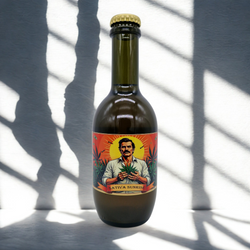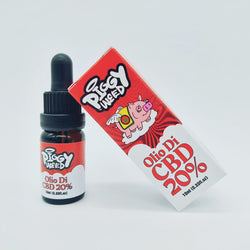We all know the benefits of Cannabis oils and tinctures, both with and without THC, for the treatment of physical conditions such as arthritis and mental conditions such as anxiety and depression. But new studies on weed, particularly on the legal 100% CBD variety, are showing interesting developments even with regards to one of the most serious psychiatric illnesses, namely schizophrenia. It seems that CBD may have, among its many benefits, also the potential to natural antipsychotic. In this article, we will explore the topic of the relationship between CBD and schizophrenia by focusing on the most recent research.
What is schizophrenia?
Schizophrenia is a psychiatric illness particularly difficult to deal with and is the first mental illness to cause absences from work worldwide. Schizophrenia, in fact, is particularly disabling because it causes the patient to lose contact with reality, resulting in him being unable to provide for himself in the most acute episodes and putting his health at serious risk.
Schizophrenia usually begins around the age of 20 but later onsets have also been reported. The causes of this disease are purely organic but stressors and traumas can also contribute to bringing the disorder to light where it is latent.
The most well-known symptoms of schizophrenia are the hallucinations visual and auditory: the patient hears and sees objects and people that are not present in reality. The most common hallucinations are auditory ones in the form of "voices in the head”. Schizophrenia is also characterized by delusions (false or irrational beliefs) and sometimes from paranoia (sense of persecution) that lead the person to fall into a spiral of anguish. One of the lesser-known characteristics of the disorder is a sort of apathy: the person seems emotionless, dull, cold. The schizophrenic often suffers from amnesia and has cognitive problems such as lack of concentration and attention.
How is schizophrenia treated? It is a chronic disease and must be treated with drugs for life. Being what in psychology is called psychosis (an alteration of the perception of reality, which can include symptoms such as hallucinations, delusions, disorganized thinking and bizarre or inappropriate behavior) schizophrenia is treated with antipsychotic drugs. These drugs are necessary for patients to contain the symptoms and live a normal life, but unfortunately they can have side effects heavy. This is where “magical” plants like cannabis come into play, which can play the role of natural antipsychotic allowing to lower the doses of classic drugs.
Cannabis and Schizophrenia: What the Studies Say
The studies on Cannabis as best antipsychotic for anxiety have a long tradition but since 2012 it has been thought to use CBD weed among the homeopathic antipsychotics for serious illnesses such as schizophrenia.
The first study compared CBD with amisulpride, a classic and powerful pharmacological remedy used for years to treat schizophrenia.The double-blind study demonstrated that “Cannabidiol is as effective in improving psychotic symptoms as amisulpride standard antipsychotic”. An epochal result that could overturn the way we see CBD today. Why is it so important to explore the potential of CBD? Because, with equal effects, this substance is much more tolerable, with minimal side effects, unlike classic remedies.
This is what another study from 2014 suggests, which suggests the possibility that CBD may have antipsychotic effects without showing all the dangers of classic drugs. antipsychotic that doesn't make you gain weight and is not associated with risks to the liver, kidneys or other organs.
A more recent study, from 2018, has striking results: patients treated with CBD or antipsychotic drugs traditional chemists were compared for a period of six weeks, along with a control group treated with a placebo. All the participants in the study had schizophrenia. After six weeks the group that had taken CBD “presented lower levels of psychotic symptoms as well as improvements in cognitive performance and general condition.”
All this research suggests the enormous potential of cannabis and how to cure schizophrenia without drugs could be a possibility for the future.
What CBD Does to the Brains of People with Psychosis
CBD and a more classic remedy against schizophrenia, anandamide, have a similar action because they bind to same receptors: this explains the effectiveness of cannabis in treating schizophrenia.
A recent study compared, using magnetic resonance imaging, the brains of psychotic patients who had taken cannabis or a placebo. Functional graphs of the prefrontal and midfrontal areas of the brain were significantly better in patients who had taken CBD, resulting more similar to those of non-diseased people.
Some scholars have expressed THC concerns, however present in residual quantities even in legal cannabis: they feared that a schizophrenic patient, already cognitively deficient, could be affected by the psychotropic molecule and worsen.
Instead, it was seen that psychotic patients treated with cannabis, with and without THC, showed cognitive performance better than those who didn't take weed.
THC may worsen long-term cognitive performance in healthy individuals, but for schizophrenic individuals it actually appears to improve. We await further studies on this, but in any case Is CBD the real antipsychotic of cannabis?, not THC.
Conclusions
In recent years, studies on the potential of cannabis as a natural cure for the body and mind are increasingly explored: this is a good thing because integrating classical chemical medicine with more natural, tolerable and “green” remedies will help improve both the lives of patients and the health of the planet in the future. We look forward to the new studies that will come and that will make us know more about the extraordinary products of nature.
The information contained in the Piggyweed blog is for informational purposes only and can be modified or removed at any time. In no case should it be considered as a diagnosis or prescription of treatment and should not in any way replace doctor-patient relationships or specialist visits. It is always recommended to consult your doctor and/or specialists regarding any indication reported. In case of doubts or questions about a treatment it is necessary to consult your doctor.





